Rider Profile: Rui Costa
A look at cycling's new world champion
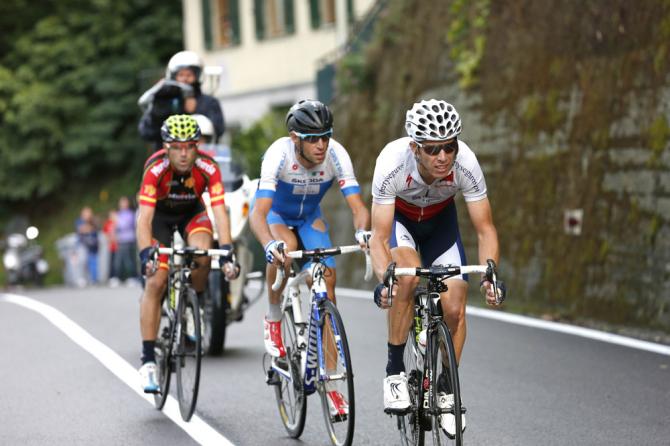
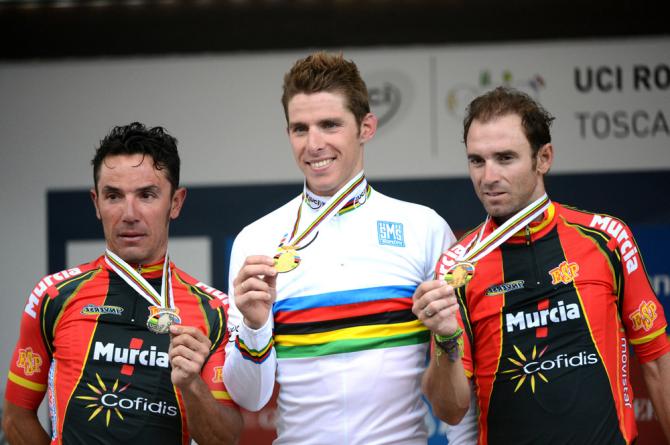
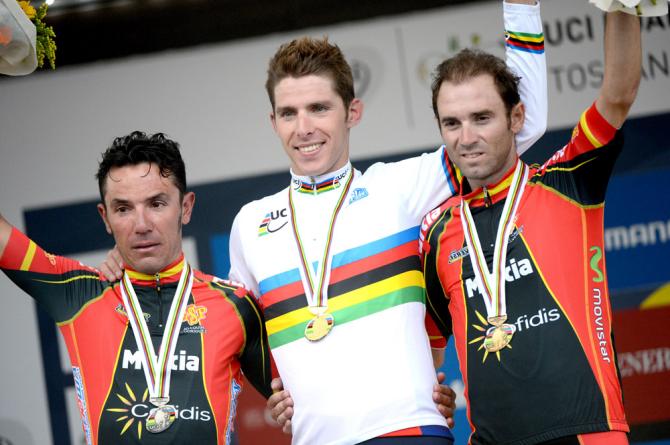
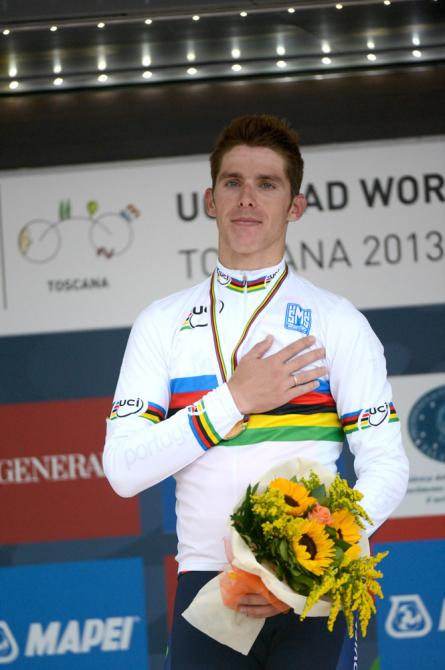
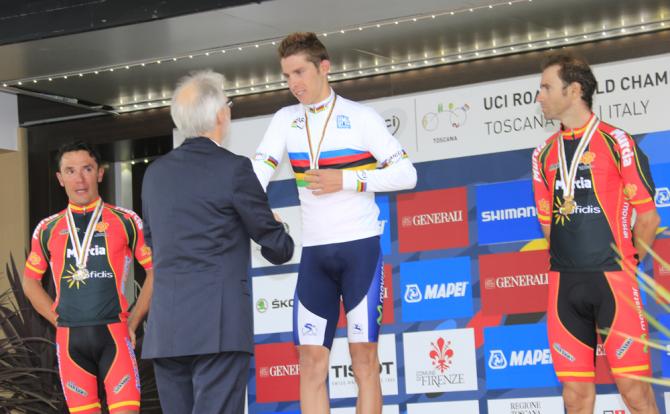
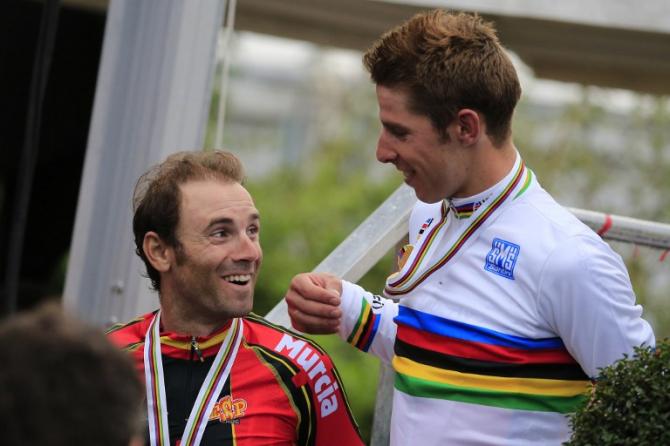
In hindsight, perhaps the biggest surprise about Rui Costa’s victory in the UCI Road Race World Championship on Sunday was that he wasn’t picked out beforehand as one of the favourites for the rainbow jersey. Winner of the Tour of Switzerland and two stages at the Tour de France this summer, the Portuguese who celebrates his 27th birthday next Saturday had top six finishes in the WorldTour races in Quebec and Montreal earlier this month and came into the Worlds as the undisputed leader of his national team.
Sure, that team was only three-strong, but Costa did not allow that to constrain him in the last two editions of the Worlds, where he finished 11th and 15th on courses that didn’t suit him as well as the parcours in Florence. A proven one-day performer, particularly on hilly courses, Costa went into Sunday’s race knowing he had the form to capitalise on any opportunity that came his way, and did exactly that with a brilliant tactical performance.
Costa’s profile has been affected by his position among the second rank of riders within Movistar’s pecking order, below Grand Tour leaders Alejandro Valverde and Nairo Quintana. Back-to-back victories in the Tour of Switzerland and a total of three Tour de France stage wins would probably have earned him more freedom on other teams, which is why Costa will be heading for Lampre for the 2014 season.
Second at the Tour de l’Avenir to fellow 2013 Tour stage winner Jan Bakelants in 2008, Costa stood out in the under 23 ranks even as a teenager. A time trial specialist who was no slouch on the climbs, he was courted by a number of leading teams before opting to join what was then Caisse d’Epargne in 2009. Like many new pros on Spanish squads, he was blooded at the Classics, riding Sanremo, Flanders, Gent-Wevelgem, Roubaix, Amstel, Flèche and Liège that spring. Finishing Sanremo, Flanders and Roubaix underlined his talent and endurance, which was further emphasized when he went on to win the Four Days of Dunkirk that May.
That outstanding result and a subsequent 13th place at the Tour of Switzerland earned him selection for a Tour debut in his first season at the top level. Second place in Dunkirk and a stage win in Switzerland a year later earned him a return to the Tour, which he completed for the first time. However, at that point, Costa was hit by a positive drugs test. Both he and elder brother, Mario, tested positive for the banned stimulant methylhexaneamine at the Portuguese championships.
Released by their respective Caisse d’Epargne and Barbot teams, the brothers were able to show that the substance, a fat metaboliser/burner, was present in a supplement that were using and had been ingested unwittingly. Although they initially faced a ban of two years, a change in WADA’s classification of methylhexaneamine aided their defence. The product’s reclassification as a “specified substance” meant a lesser sanction could be imposed if it could be proven it had been ingested accidentally. The Costa brothers subsequently served a five-month ban. In April 2011, Rui Costa re-signed with what was by then Movistar. Three weeks later, he topped the podium at the Tour of Madrid.
Over the past two years, Costa’s rise has continued, although he has undoubtedly been overshadowed by the rapid emergence of young Colombian Quintana. His victory in last year’s Tour of Switzerland was the first by a Portuguese rider. That came thanks to an impressive summit victory at Verbier ahead of some of the peloton’s leading climbers. Eighteenth place at the Tour de France a month later suggested Costa also had plenty of potential over three weeks, although this remains largely untapped.
Get The Leadout Newsletter
The latest race content, interviews, features, reviews and expert buying guides, direct to your inbox!
Those and other successes led to Costa’s selection as Portugal’s sports’ personality of the year in 2012, which was some accolade given he was up against Real Madrid’s Cristiano Ronaldo for the title. The footballing superstar may be wondering if he is going to miss out on that prize once again given Costa’s exploits since June, when he retained his Tour of Switzerland title. He has gone on to claim two Tour de France stages in just four days, before taking the rainbow jersey in Florence.
Movistar, too, may be wondering about Costa’s performances and their decision to let him leave. Not only are they set to miss out on the prestige of having the world champion in their ranks next year, but they may yet find they have released an exceptional grand tour contender. At the same time, Lampre will scarcely believe their luck. Almost non-existent on this year’s Tour, they now have a focus for next year’s race in the shape of the new world champion, a rider who can climb and time trial with the best, has the endurance to thrive over three weeks, and has now shown how canny he can be even when the odds are stacked against him.
Peter Cossins has written about professional cycling since 1993 and is a contributing editor to Procycling. He is the author of The Monuments: The Grit and the Glory of Cycling's Greatest One-Day Races (Bloomsbury, March 2014) and has translated Christophe Bassons' autobiography, A Clean Break (Bloomsbury, July 2014).